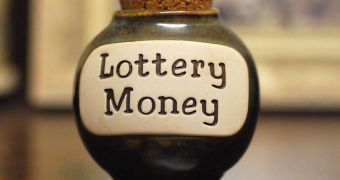Since the number of lottery scams recorded a considerable increase and a high rate of success, security companies and their experts are launching awareness raising campaigns to make sure Internet users learn to identify and ignore the malicious claims.
Experts from Kaspersky’s Securelist compared a number of these scams in the effort of highlighting the things giving away their true identity and purpose.
Judging by the ill-intended lottery campaigns we've covered so far, we can determine that most of them try to dupe the lucky winner into sending the crooks certain amounts of money allegedly needed to transfer the millions.
In reality, no one ever wins anything, the techniques utilized by the cybercrooks allowing them to disappear with the money while making sure they can’t be traced even if they’re reported to the authorities.
BBC lotteries, Facebook lotteries, Microsoft lotteries, Spanish lotteries that target people from Ireland all have one major thing in common. They all provide inaccurate facts that seem to be put together in a hurry.
The scam emails usually address the recipient with “dear” or “sir/madam,” something that a genuine lottery would never do. Even if legitimate lottery companies do decide to notify winners via email, they surely won’t send messages filled with grammar errors, typos and confusing facts.
Internet users who do play the lottery and receive such emails can easily check out if they’re valid or not. That’s because no one should expect a notification from the Facebook lottery if they participated in the Spanish ‘El Gordo’ sweepstakes.
Also, the contact information can give away the true identity of a scam. By checking out the company’s details, users can easily spot discrepancies.
A final clue that makes an email scream fake lottery is the address they’re being sent from. Fraudsters seldom bother to spoof email addresses to make them look more legitimate, instead they send the hoaxes from commercial email accounts such as Gmail, Hotmail and even Yahoo!.

 14 DAY TRIAL //
14 DAY TRIAL //